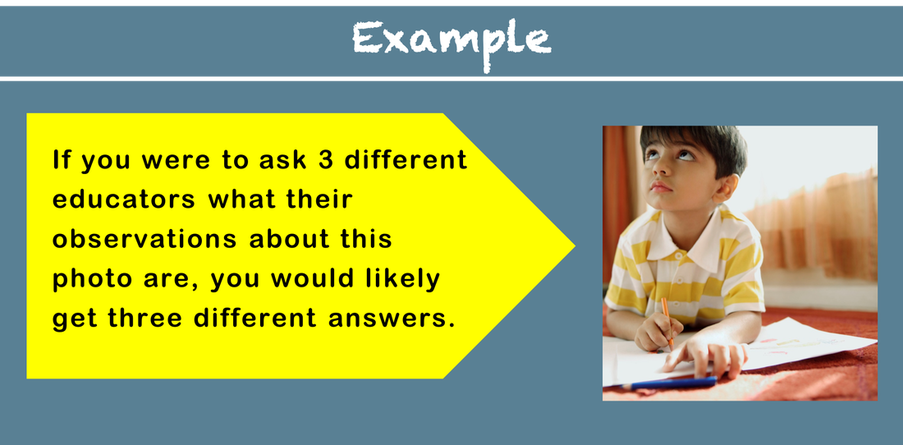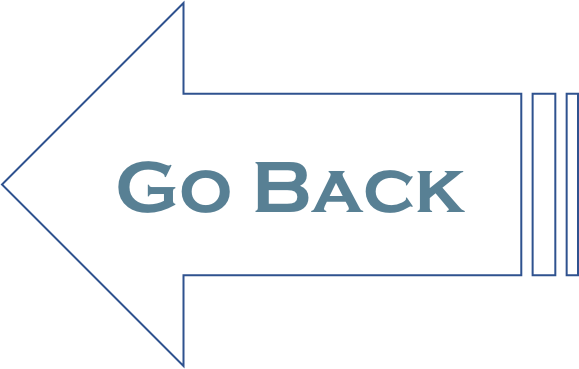Types of Observations |
Page 6 |
The first place to focus with observations is in the type that we so often experience. It is critical to perform an unbiased and neutral observation which is considered an objective observation. Objective observations simply state the events that are occurring in proper detail and description. There is no attempt to blame, diagnose, or make an emotional decision. Subjective observations are quite the opposite and tend to be based either on an emotional or personal level. In most cases these types of observations should be avoided by focusing on observing the events as they occur. Some subjective observations can be helpful if you know specifics that may cause a certain behavior or if you have evidence to back up whatever subjective claim you are making.
The fact is, the only objective observations we can make are that this child is lying on the ground, pencil in hand, holding the paper with his other hand. Some educators may begin to make subjective observations about this child stating that he looks sad, or that he is listening to his teacher give directions. Subjective observations fill in the gaps of missing information that may be necessary but in this example, they would be completely inaccurate. Objective observations are preferred because they include only the facts about the situation. Subjective observations can be helpful when the observer does know more about extenuating circumstances.




